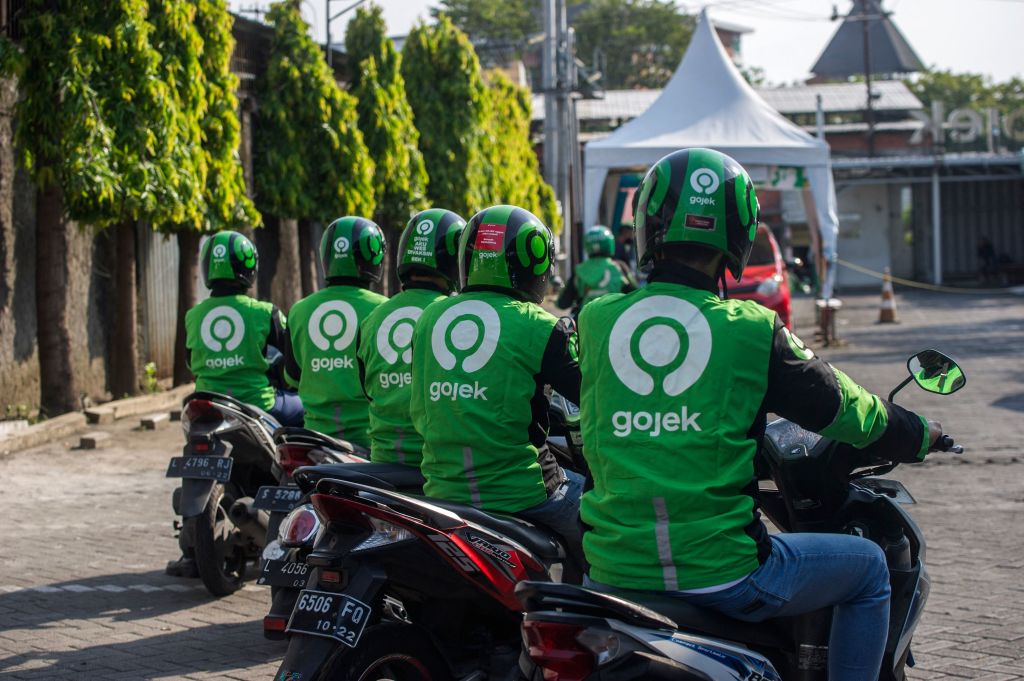
GoTo Group, Indonesia’s largest technology firm formed out of a merger between Gojek and Tokopedia, has raised $1.3bn in a pre-IPO funding round.
The near-$30bn company is preparing for a dual listing IPO in the US and Indonesia, with reports suggesting this could come as soon as the first half of 2022.

Access deeper industry intelligence
Experience unmatched clarity with a single platform that combines unique data, AI, and human expertise.
New investors in the GoTo funding round include Primavera Capital, Permodalan Nasional Bhd and Fidelity International. Existing backers Google, Tencent and Temasek also participated in the funding round. The round was led by Abu Dhabi Investment Authority, which invested $400m in GoTo last month.
GoTo said it is looking to add more funding before the pre-IPO round closes in the coming weeks.
Ride-hailing and payments company Gojek completed its merger with ecommerce firm Tokopedia in May this year to form an $18bn Indonesian powerhouse. Since completing the largest merger in Indonesia’s history, GoTo’s valuation has since risen to an estimated $28.5bn-£30bn.
The merger created a so-called “super app” that offers food delivery, ride-hailing, ecommerce and financial services in one place.

US Tariffs are shifting - will you react or anticipate?
Don’t let policy changes catch you off guard. Stay proactive with real-time data and expert analysis.
By GlobalData“Imagine that Amazon, DoorDash, Uber, PayPal, Stripe is combined together,” William Tanuwijaya, co-founder of Tokopedia previously told CNBC. “There’s a saying that if you want to go fast, you go alone; if you want to go far, you go together. So GoTo, basically, is go far, go together.”
GoTo claims its family of apps and services generated more than 1.8 billion transactions in 2020 at a gross transaction value of over $22bn. It has 100 million monthly active users, over 11 million merchants and more than 2 million drivers
For tech companies in general the appeal of super-apps is the ability to keep consumers within their ecosystems for longer periods of time. More eyeballs means greater advertising revenues, more opportunities to cross-sell through synergies and higher commission payments from all of the microservices offered under its umbrella.
The model has proven successful for Chinese app WeChat, which is the largest super-app in the world offering more than a million services to over one billion users.
GoTo funding: Opportunities and challenges in Indonesia
While Indonesia offers a much smaller market than China, its 270 million inhabitants make it the fourth most populous nation. However, Indonesia’s internet users as a percentage of its population lags behind the likes of China, Japan and South Korea, according to GlobalData figures.
For a company offering internet services this could dampen GoTo’s growth prospects. GoTo will also need to solve the logistical challenges of reaching consumers spread across the more than 17,000 island archipelagos that make up Indonesia. Historically it has focused on urban centres such as Java.
Despite this, GoTo’s own figures show the combined ecosystems of Gojek and Tokopedia encompasses 2% of Indonesia’s gross domestic product (GDP).
Prior to the merger, Gojek had been downloaded more than 125 million times while Tokopedia is the second-largest online shopping site in Indonesia.
“Indonesia and Southeast Asia are some of the most exciting growth markets in the world, and the backing we’ve secured shows the confidence that investors have in the region’s rapidly expanding digital economy and our market-leading position,” said Andre Soelistyo, CEO of GoTo Group.
“Consumer demand is being unlocked by growth in digital adoption that has brought many new users online. As a result, demand for our service continues to increase, underscored by our commitment to continuously deliver selection, value and convenience to users across the ecosystem.”







